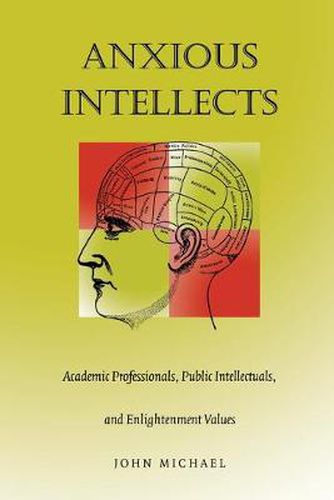Readings Newsletter
Become a Readings Member to make your shopping experience even easier.
Sign in or sign up for free!
You’re not far away from qualifying for FREE standard shipping within Australia
You’ve qualified for FREE standard shipping within Australia
The cart is loading…






This title is printed to order. This book may have been self-published. If so, we cannot guarantee the quality of the content. In the main most books will have gone through the editing process however some may not. We therefore suggest that you be aware of this before ordering this book. If in doubt check either the author or publisher’s details as we are unable to accept any returns unless they are faulty. Please contact us if you have any questions.
A discussion of how critics from the right and the left have conceived of the intellectual’s role in a pluralised society, weighing intellectual authority against public democracy, universal against particularistic standards, and criticism against the respect of popular movements. John Michael asserts that these Enlightenment-born issues, although not resolvable, are the very grounds from which real intellectual work must proceed. As part of his investigation of intellectuals’ self-conceptions and their roles in society, Michael concentrates on several well-known contemporary African American intellectuals, including Henry Louis Gates Jr and Cornel West. To illuminate public debates over pedagogy and the role of university, he turns to the work of Todd Gitlin, Michael Berube, and Allan Bloom. In the second half of the book, Michael relies on three popular conceptions of the intellectual - as critic, scientist, and professional - to discuss the work of scholars Constance Penley, Henry Jenkins, the celebrated physicist Stephen Hawking, and others, insisting that ambivalence, anxiety, projection, identification, hybridity, and various forms of psychosocial complexity constitute the real meaning of enlightenment intellectuality.
$9.00 standard shipping within Australia
FREE standard shipping within Australia for orders over $100.00
Express & International shipping calculated at checkout
This title is printed to order. This book may have been self-published. If so, we cannot guarantee the quality of the content. In the main most books will have gone through the editing process however some may not. We therefore suggest that you be aware of this before ordering this book. If in doubt check either the author or publisher’s details as we are unable to accept any returns unless they are faulty. Please contact us if you have any questions.
A discussion of how critics from the right and the left have conceived of the intellectual’s role in a pluralised society, weighing intellectual authority against public democracy, universal against particularistic standards, and criticism against the respect of popular movements. John Michael asserts that these Enlightenment-born issues, although not resolvable, are the very grounds from which real intellectual work must proceed. As part of his investigation of intellectuals’ self-conceptions and their roles in society, Michael concentrates on several well-known contemporary African American intellectuals, including Henry Louis Gates Jr and Cornel West. To illuminate public debates over pedagogy and the role of university, he turns to the work of Todd Gitlin, Michael Berube, and Allan Bloom. In the second half of the book, Michael relies on three popular conceptions of the intellectual - as critic, scientist, and professional - to discuss the work of scholars Constance Penley, Henry Jenkins, the celebrated physicist Stephen Hawking, and others, insisting that ambivalence, anxiety, projection, identification, hybridity, and various forms of psychosocial complexity constitute the real meaning of enlightenment intellectuality.